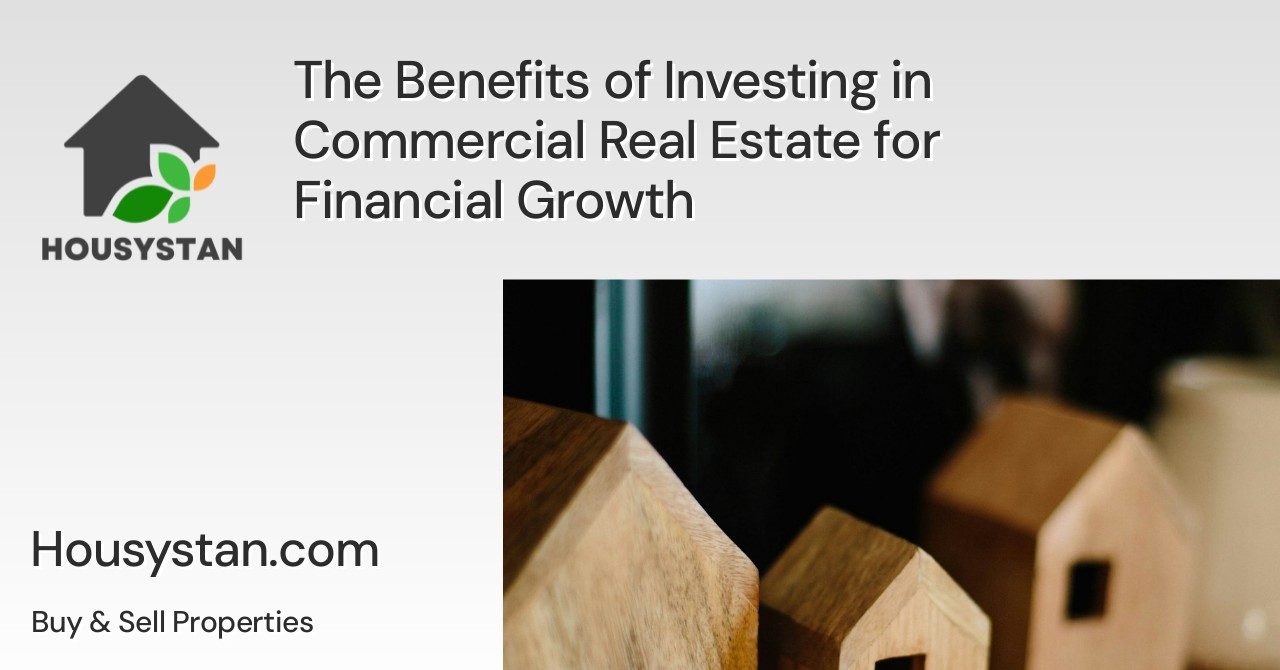The Benefits of Investing in Commercial Real Estate for Financial Growth
Read latest blogs and articles from Housystan

The Information mentioned here was last updated on:
29/1/2026Investing in commercial real estate stands out as a proven strategy for individuals and businesses seeking robust financial growth. This asset class, which includes office buildings, retail centers, warehouses, and multifamily properties, offers a range of advantages that can significantly enhance wealth and security. For investors in thriving urban and suburban markets across the United States, from New York City to Los Angeles and everywhere in between, commercial properties present compelling opportunities for both immediate income and long-term appreciation.
One of the primary benefits of commercial real estate investment is the potential for steady cash flow. Unlike residential properties, commercial leases typically extend over multiple years, ensuring consistent rental income. Businesses leasing commercial spaces are often more stable tenants, reducing vacancy rates and minimizing turnover expenses. This provides property owners with reliable monthly revenue, which can be reinvested or used to fund other ventures.
Another significant advantage is the opportunity for property value appreciation. Commercial properties located in high-demand areas—such as downtown business districts, growing suburbs, or regions experiencing economic expansion—often increase in value over time. Strategic improvements, such as renovations or technology upgrades, can further boost asset worth, yielding substantial returns when it comes time to sell.
- Verified Tenants/Buyers
- Unlimited Property Listing
- Zero subscription/charges fee
Tax benefits represent an additional incentive for commercial real estate investors. Owners can take advantage of deductions for mortgage interest, property depreciation, and operational expenses, effectively lowering their taxable income. These tax advantages are available nationwide, making commercial property investment an attractive option regardless of location.
Diversification is essential for any investment portfolio, and commercial real estate delivers this benefit by offering a tangible asset that is less volatile than stocks or bonds. By including properties in cities like Austin, Seattle, Miami, or Chicago, investors can spread risk geographically and across different industries, safeguarding their wealth against market fluctuations.
In summary, commercial real estate investment provides a pathway to financial growth through consistent income, property appreciation, tax breaks, and portfolio diversification. Whether you are based in a booming metropolitan area or an emerging market, seizing opportunities in commercial property can secure your financial future and establish lasting prosperity.